HOME » NEWS » Trends » Collaboration in Tourism
Collaboration in Tourism: Understanding and Current Challenges
Tourism experts agree that collaboration is essential for the success of individual tourism businesses and destinations as a whole. Unlike other industries, tourism involves a tourist consuming various services and goods in a short period of time. Therefore, building communication with tourists is challenging. The idea of cooperation is to make tourist services and goods available through channels of the service provider’s partners. Despite the widespread coverage of this issue, collaboration has not yet become popular working mechanism among hotels, guides, transportation companies and other providers of tourist services. However, there are positive examples of partnerships, and we will discuss them here. With the practical examples, we will take a look at how to build and use partnerships with business benefits, and what kinds of partnerships can exist in tourism.
Collaboration between Heterogeneous Businesses
The interaction of different types of businesses leads to an increase in the total number of potential customers. This increases customer satisfaction and the length of their stay in the destination. For instance, if some guide, some taxi company, and some hotel decide to mutually refer their customers to each other, each will receive two more potential clients without sacrificing anything. It is easy to calculate that the number of clients can grow by the factor of three in this case. Building a network of such collaborations could results in much higher benefits for all participating organizations.
Ideas for Practical Construction of Cooperation between Heterogeneous Organizations
Finding organizations to collaborate with might be nontrivial. Let us list some advices in this regard:
- Think about related businesses that are not directly related to tourism but are frequently used by tourists. Cooperate with these businesses.
- Trace the typical paths of tourists. Advertise your tour business at the places they visit more often.
- Announce any partnership on your website and provide a link to your partner. It would be great if your partner would do the same. This would boost organic traffic to both your and your partner’s websites.
- Consider creating a “Partners” section on your website. This could bring an opportunity to receive collaboration offers from other organizations.
Examples of Cooperation between Heterogeneous Businesses
SCANDI Hotels’ partnership with many organizations and tourism businesses:
TAXI TCA cooperates with museums, theaters, concert halls, etc:
THAI AIRWAYS cooperates with hotels, payment systems and car rental companies:
SESAME PLACE park cooperates with hotels:
Benefits of Collaboration between Heterogeneous Businesses
The main benefits are obviously financial. The exchange of clients increases their number for each partner. There are also indirect benefits. For example, when a hotel sponsors a theater, it strengthens its image as a company interested in the cultural development of the destination.
Collaboration with Museums
Museums provide unique experiences for tourists. They concentrate the cultural and historical content that tourists come for.
Practical ideas for collaborations with museums are:
- Advertise museums on your website, attach links to their websites.
- Negotiate a partnership with the museum to put your link on their website. Consider sponsoring the museum with a mention of your brand to gain new potential customers.
- If you organize tours, make a visit to the museum (must thing to do!).
- Sell tickets to the museum, perhaps with some commission. This a common practice that benefits both your organization and museum.
Examples of Cooperation between Museums and Tourism Businesses:
The Olympic Museum offers online ticket sales to tourist organizations:
The BEST WESTERN Hotel offers discounted tickets to the museum:
TRADE WINDS Resort puts descriptions of museums and other cultural institutions nearby on its website:
Hotel FOUR SEASONS hosts museum tours on its website:
THE DON CESAR Hotel lists descriptions of museums and other cultural institutions on its website:
The Chicago Museum posts links and descriptions of partner hotels on the site:
The Art Museum of Seattle posts links and descriptions to partner hotels:
Benefits of Online Collaboration with Museums
Like any collaboration in tourism, a partnership with museums is a win-win situation. Museums get greater promotion and popularization through tourism businesses, while tourism businesses get additional traffic and an improved image among tourists. Everyone wins, including the destination and tourists.
Collaboration of Homogeneous Businesses and Their Associations
By homogeneous businesses we mean businesses of the same type. Despite strong competition in the tourism industry, modern reality rewards cooperation rather than competition. For example, if a hotel has empty rooms, the staff can recommend a similar hotel of the same class and price to arriving guests. This customer exchange can be mutually beneficial not only for the hotels, but also for the destination as a whole, as it shows friendliness and a desire to help the tourist.
Furthermore, homogeneous businesses face the same problems such as taxes, administration and organization, which are easier to solve together. For this purpose, it is typical to create an association that can help all businesses of a certain type to deal with such problems. Associations play an important role in training business leaders in online technologies, sustainable development practices and tourism digital marketing.
Practical Ideas for Developing Collaboration between Homogeneous Businesses
- Discuss how to improve the guest experience as a whole with other businesses in your segment. There is no reason for competition as “the tide lifts all boats”. The happier tourists are, the more they will tell other potential tourists about the destination. Determine how you can exchange customers and assist each other when needed.
- Contact your local industry association to establish a mutual partnership and link your business on their website.
- Exchange experiences in your field, such as implementing sustainability practices, and promote it on your social media and website.
- Get to know different industry associations. Participation in them may be useful.
Examples of Collaboration between Similar Businesses
Hotel Sustainability Association:
The Direct Booking Hotels Summit:
Partnerships between airlines to provide transatlantic flights:
The Benefits of Collaboration between Businesses of the Same Type
Communication with colleagues is never superfluous, because there as many opinions as there are people, and often, colleagues can offer new perspectives. Besides, if you help other organizations of the same type as yours, for example, in case of service impossibility or lack of some resources, you can always count on their help in exchange.
Partnership with Local DMOs
Local tourism departments are maintained by the state to attract potential tourists and make their stay comfortable. Therefore, it is essential to partner with local tourism businesses. Local DMOs can post links with descriptions of tourism-related organizations, promote them on their online and offline resources, meetings, seminars, etc. This collaborations are relatively easy to establish as this is task of DMO to provide information to tourists.
Ideas for Developing Collaboration with Local DMOs
- Negotiate with local DMOs to link your business on their official website. Use global experience as an example.
- Participate in local DMO events, sponsor or organize some meetings and festivals.
- Promote your services through visitor centers. Such centers usually depend on the local DMO or ruled directly by the DMO. Many DMOs provide such services.
Examples of DMO Partnerships
The DMO of Dubai posts descriptions of activities for tourists on the official website:
The DMO of Paris posts links and hotel descriptions on the official website:
DMO of Berlin posts descriptions and links to tours on the official website:

The Benefits of Collaboration with DMOs
Collaboration between businesses and local DMOs results in benefits for everyone. The former increases the number of potential tourists due to additional traffic from DMOs, and the latter prolongs the tourists’ stay in the destination by offering a wider range of services. Moreover, tourists’ loyalty increases because everything is offered in one place, and they do not have to stand in queues or keep searching elsewhere.
Collaboration with Cultural Representatives
Tourism is an industry that offers unique and authentic experiences. The best people to provide authentic cultural experience are the brightest cultural representatives, people of local art and history. These people possess uniqueness of the destination, and are able to convey the cultural and historical code.
Practical Ideas for Cooperation with Cultural Representatives
- Involve historians, writers, and local historians in compiling tour itineraries, content, and descriptions on the website.
- Ask local professional artists and designers to design your business in a local style. This can include office design, website design, social media covers, etc.
- Hire local professional artists to do voice-overs for your audio-guides. Only they will be able to convey the full experience of the destination through storytelling.
- Hire local professionals to take photos and videos of the tourist content.
Examples of Partnerships between Tourism Businesses and Cultural Figures and Institutions
The British Hotel Association works with a professional video studio:

The hotels collaborate with a musical group:
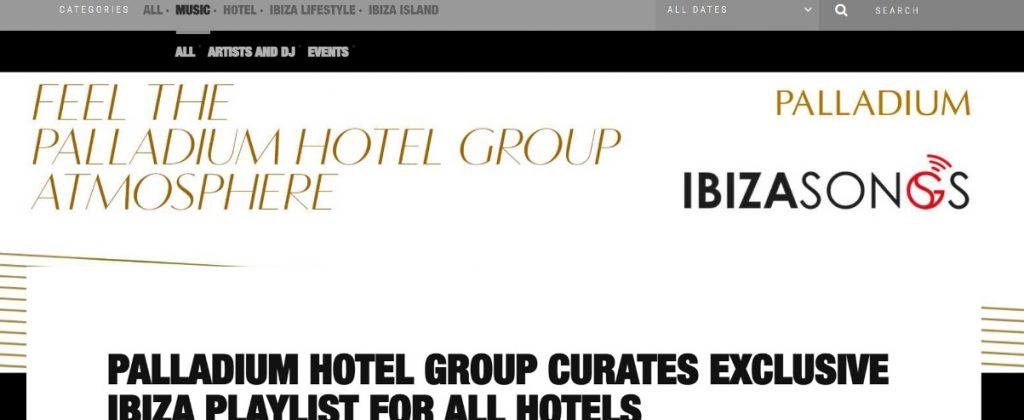
A group of hotels takes part in the creation of a music video:
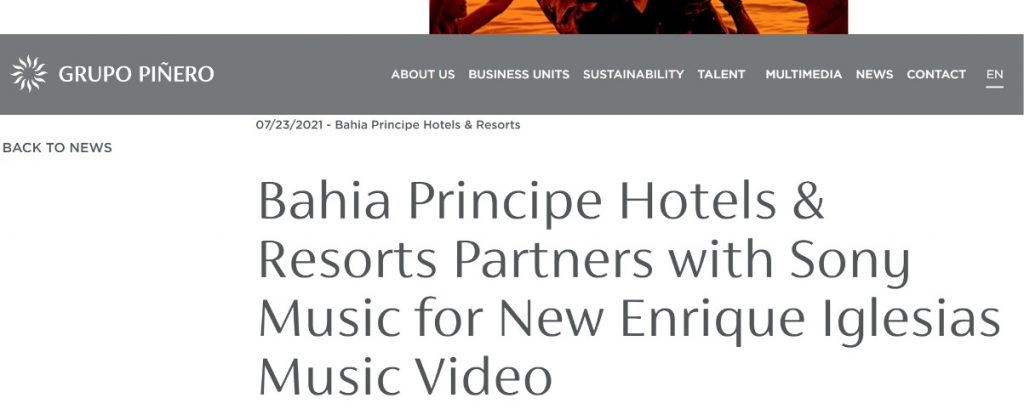
Benefits of Cooperation with Cultural Representatives
Since artists are the bearers of local specifics, they are the only ones who can bring them to tourists in the best way. By cooperating with a regional business, they will give it a local flavor, thereby improving it. In the long run, such a business will be valued more than some large unified but faceless corporation. In addition, such cooperation will improve the quality and authenticity of the content.
Partnerships with Universities
Collaborating with universities could be very beneficial. This is often forgotten by tourism businesses when they unsuccessfully try to find the right specialists in the market. In universities, you can often find the latest trends in tourism development. And the destination as a whole benefits from the quality of specialists’ training.
Practical Ideas for Collaboration with Educational Institutions
- Invite students for internships. You may find future employees for yourself. Your business will get an image of organization supporting education. Remember, today’s students will occupy some positions in tourism tomorrow and it is better to build a relationship with them in advance.
- Offer to give a guest lecture at the university about current problems in tourism or in your industry. Just talking about the problems can help you better understand them or give you a fresh perspective on how to solve them.
- Have an exchange with educators. In many cases educators are not up to date on the latest changes and trends. The same can be said about practitioners. Linking science and industry has never been superfluous. This can offer new ideas and approaches to all parties.
- Take a part in research. This will help you better understand tourism processes as well as help the destination as a whole. In addition, mentioning your brand as a participant in scientific research can play a positive role in strengthening and recognizing the brand.
Examples of Collaborations with Educational Institutions
The IHG Hotels Group supports talented students:
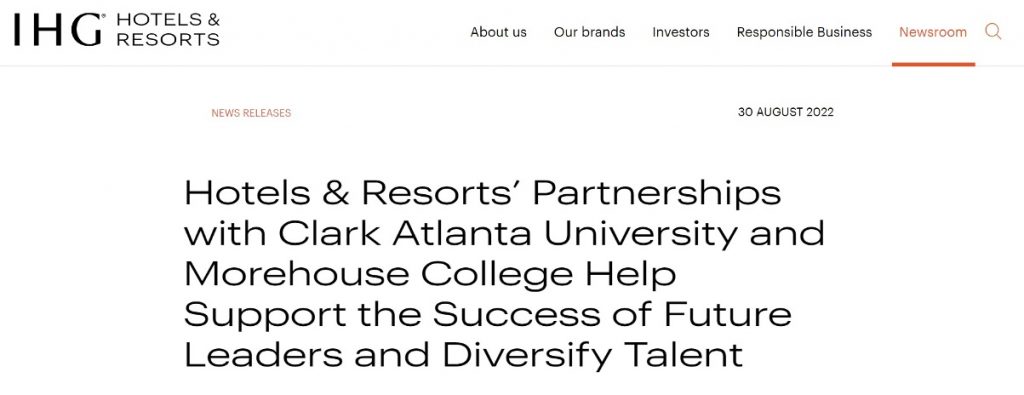
The ABTA Travel Agents Association works with universities and colleges:

The travel firm Anthony Travel caters to university trips:
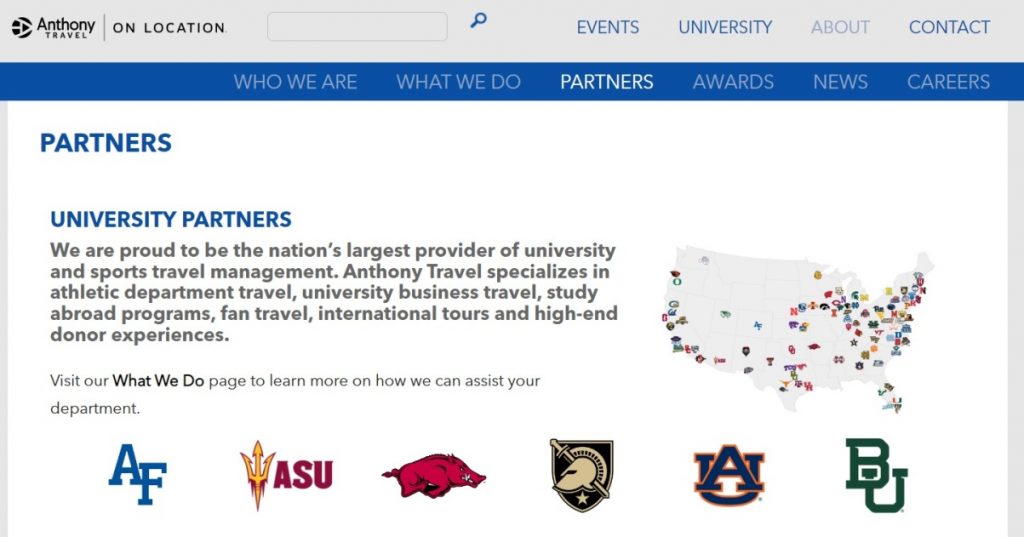
Many hotels partner with The Masters University:

Benefits of Cooperation between Business and Universities
Improved training of hoteliers, guides, excursionists and other tourism professionals will contribute to the future improvement of the quality of tourist services. As a result, tourism businesses will get qualified employees, adapted to the most modern requirements. This could also add future visitors coming to your destination. There are many people who travel, fly to conferences, organize various events, who can also be customers of a tourism business.
General Guidelines for Online Collaboration
You must remember that just exchanging links is not enough. You need to provide a more detailed description of your partner’s business. You need to use storytelling to present your partner, in the right place at the right time.
When building an online collaboration, you should think about the people who come to your site and to your partner’s site. If there is potential overlap between these audiences, the partnership makes sense and has good prospects.
You should not forget about your social media pages. Mutual likes, reposts, and mentions of partners increase the organic reach of both pages due to overlapping audiences.
Proper collaboration and co-creation are relatively new but effective marketing tools for tourism businesses and destinations. These also contribute to the sustainable development of smart tourism.
Author: Dmitriy Tin – founder of Center Smart Tourism GmbH
Editing and translation into English: Leonid Andrianov